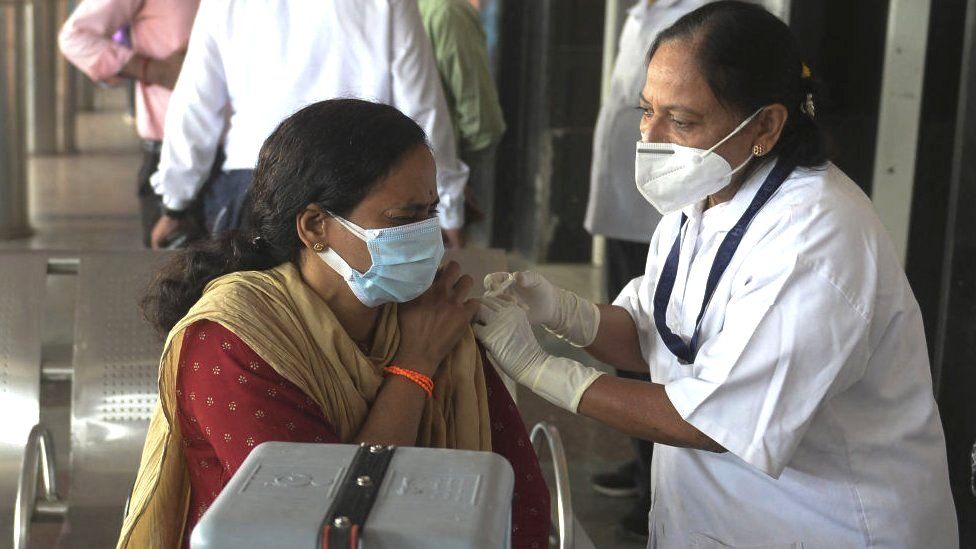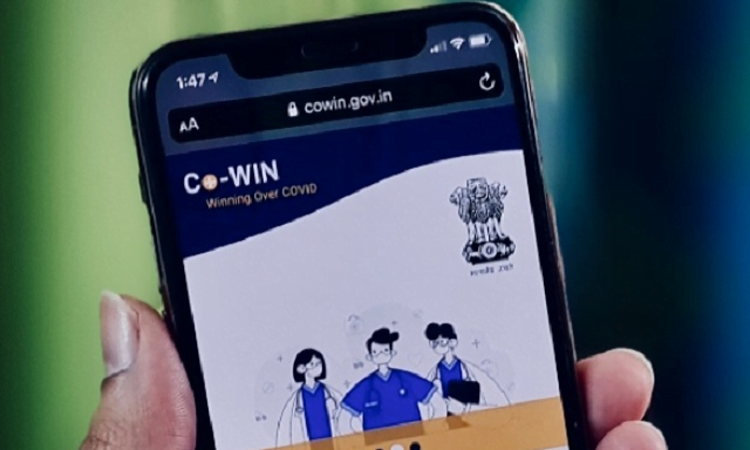The reported compromise of essential information pertaining to the majority, if not all, individuals who received Covid vaccinations in India, potentially affecting nearly a billion people, is not only regrettable if proven accurate but also presents a significant concern regarding the confidence of all citizens in disclosing any data to the government through a wide range of obligatory applications.
Another potential data breach of CoWIN, following previous breaches in 2021 and 2022, has once again highlighted concerns regarding India’s inadequate cybersecurity systems. In past incidents, the government denied the claims and stated that the Indian Computer Emergency Response Team (CERT-In), its nodal agency, had initiated investigations. However, the matter soon faded away without resolution and has now resurfaced.
According to The Fourth, a Malayalam news website that first reported the incident, the data breach was discovered on Telegram, a messaging app. The breach was facilitated through an automated account which was a bot. When users sent their mobile phone numbers to the bot, it responded by providing personal information such as their name, date of birth, type and number of identity documents, and the location of their last vaccination. The leak was caused by a bot on Telegram.

Another potential data breach of CoWIN, following previous breaches in 2021 and 2022, has once again highlighted concerns regarding India’s inadequate cybersecurity systems. In past incidents, the government denied the claims and stated that the Indian Computer Emergency Response Team (CERT-In), its nodal agency, had initiated investigations. However, the matter soon faded away without resolution and has now resurfaced.
The CoWIN Data breach has unveiled a distinct aspect that sets it apart from other breaches: the compromise of individuals’ date of birth. This particular piece of personal information is not only connected to their phone numbers, Voter IDs, and passports, but also to various other crucial accounts like mutual funds, insurance policies, and additional online profiles. Furthermore, the date of birth is frequently utilised as a means to reset passwords, further emphasising its significance in terms of security.
In light of the CoWIN Data breach, the exposure of one’s date of birth poses a significant threat. This breach extends its implications beyond the realm of personal identification, as it now jeopardises the integrity and safety of various financial and sensitive accounts. Considering the potential consequences, the compromise of an individual’s date of birth can have far-reaching effects, making it a critical concern from a security standpoint.
The breach undermines the trust and confidence that citizens had placed in the CoWIN platform and the government’s ability to safeguard their personal data. It highlights the vulnerability of critical healthcare infrastructure and raises questions about the effectiveness of data protection measures in place.

The implications of this breach are far-reaching, considering the vast number of individuals affected and the sensitive nature of the data exposed. It is evident that the government’s approach to data security and privacy needs a fundamental shift. Instead of focusing on data collection and monetisation, there should be a concerted effort to establish a comprehensive framework that safeguards individuals’ privacy rights and ensures data protection.
The repeated breaches highlight the pressing need for data privacy legislation. Recently, Meta was fined an unprecedented amount of 1.2 billion euros ($1.3 billion) by the Irish Data Protection Commission for violating the stringent data privacy rules of the European Union, known as the General Data Protection Regulation (GDPR). This penalty was imposed due to mishandling individuals’ data during its transfer between Europe and the United States.
The repeated breaches highlight the pressing need for data privacy legislation. Recently, Meta was fined an unprecedented amount of 1.2 billion euros ($1.3 billion) by the Irish Data Protection Commission for violating the stringent data privacy rules of the European Union, known as the General Data Protection Regulation (GDPR). This penalty was imposed due to mishandling individuals’ data during its transfer between Europe and the United States.
In contrast, India currently lacks a regulatory framework and adequate adherence to data privacy laws. It is crucial for any entity responsible for handling and processing data to prioritize the secure, protected, and responsible treatment of user information. In contrast, the current data privacy landscape in India lacks a regulatory framework and sufficient adherence to robust data privacy laws. It is imperative that any entity entrusted with the responsibility of handling and processing data places utmost importance on the secure, protected, and responsible treatment of user information
The CoWIN portal breach has shed light on the inadequacies in India’s data security infrastructure. It is imperative to conduct a thorough review of the existing security measures and adopt a proactive approach to address vulnerabilities. This includes investing in advanced encryption techniques, regular security audits, and employing skilled cybersecurity professionals. By prioritising data security, the government can instill confidence in citizens and reduce the risk of future breaches.

India urgently requires comprehensive privacy legislation that aligns with international standards and best practices. The current legal framework lacks the necessary provisions to adequately protect citizens’ personal information. The introduction of a dedicated data protection law, encompassing principles such as data minimisation, purpose limitation, and user consent, will be crucial in safeguarding privacy rights. Additionally, the absence of a dedicated data protection authority further exacerbates the vulnerabilities in India’s data privacy infrastructure. A specialised authority is necessary to oversee and enforce data protection regulations, provide guidance to organisations, and ensure compliance with international data privacy standards. Without such an authority, the oversight and accountability mechanisms remain inadequate, leaving individuals to data breaches and unauthorised access to their personal information.
In the landmark judgment of Justice K. S. Puttaswamy vs Union of India (2017) 10 SCC 1 (Puttaswamy-I), the Supreme Court of India, comprising a nine-judge bench, unanimously affirmed the fundamental right to privacy as enshrined in Part III of the Constitution of India. This judicial pronouncement established that privacy constitutes an integral component of Articles 14, 15, 19, and 21. The Court underscored the significance of informational self-determination and informational privacy, highlighting their inseparable connection with the right to privacy.
Consent plays a pivotal role in data privacy. Individuals should have complete control over their personal information and the ability to provide informed consent for its collection, use, and sharing. It empowers individuals to participate in the decision-making process regarding their personal data. It recognises individuals as active stakeholders in the data ecosystem, rather than passive subjects. This empowerment can help foster a culture of privacy and data protection.
In the landmark judgment of Justice K. S. Puttaswamy vs Union of India (2017) 10 SCC 1 (Puttaswamy-I), the Supreme Court of India, comprising a nine-judge bench, unanimously affirmed the fundamental right to privacy as enshrined in Part III of the Constitution of India. This judicial pronouncement established that privacy constitutes an integral component of Articles 14, 15, 19, and 21. The Court underscored the significance of informational self-determination and informational privacy, highlighting their inseparable connection with the right to privacy.
While the case primarily arose in the context of a constitutional challenge against the Aadhaar Act, the Court acknowledged the close interrelation between data protection and informational privacy. The Court recognised the imperative need for the State to formulate robust data protection legislation that meticulously balances the preservation of individual privacy with the legitimate concerns of the State.
The Data Protection Bill of 2022 does not also meet the proportionality standard set by the Supreme Court in the Puttaswamy case and as a result, the government was forced to withdraw the bill. The bill infringe upon individuals’ privacy rights to a greater extent than was necessary or justified for the legitimate objectives it seeks to achieve.
The CoWIN data breach serves as a wake-up call for India to prioritise cybersecurity and safeguard the right to privacy of its citizens. Strengthening our cybersecurity infrastructure, enacting robust data privacy laws, fostering public-private partnerships, promoting cybersecurity awareness, and ensuring transparency and accountability are imperative steps toward creating a secure digital environment.
The government, along with active participation from citizens and relevant stakeholders, must work collectively to fortify our cyber defences and protect the privacy of every individual in the country. Only through these concerted efforts can we pave the way for a safer and more secure digital future.
About the author(s)
Aamir Raza is a dedicated researcher based in New Delhi, India. He holds a Master's degree in Political Science from Jamia Millia Islamia University, New Delhi. He has been previously associated with Lokniti-CSDS and the Institute of Perception Studies as a Researcher. His areas of research interest include Electoral politics, representation, minority studies, ethnic politics and democratisation.






Comments:
Comments are closed.